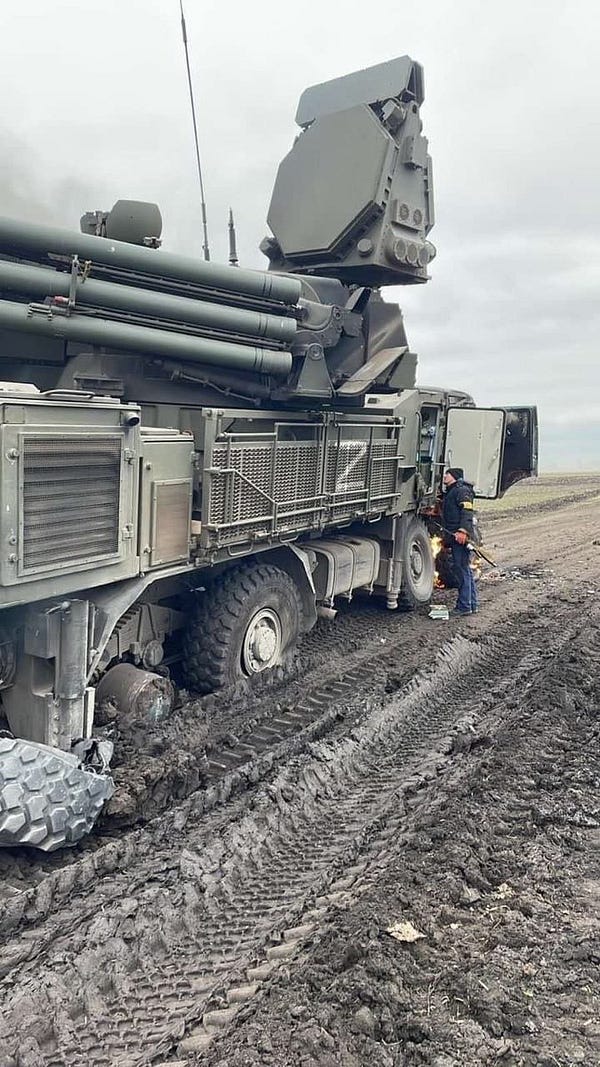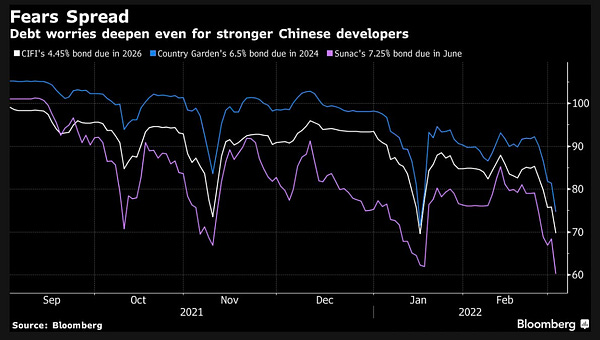Vladimir Putin’s invasion of Ukraine increasingly appears to be a major strategic blunder, but that does not necessarily mean he is “irrational.” His assumptions and decisions appear “reasonable” given his objectives, constraints, and experiences. Putin appears to have sought an early end to the war by trying to take Kyiv rapidly. While acknowledging the immense risks of a lightning strike, many analysts deemed that scenario to be plausible. Meanwhile, the former KGB intelligence officer’s obsession with secrecy, while ultimately counterproductive in the context of the invasion, nevertheless sprang from real concerns. Putin appears more like someone in over their head than a madman.
Putin’s OPSEC backfired
Putin tried to conceal his plans from everyone – Western technical intelligence, potential Western spies in the Russian policymaking and security apparatus, and, apparently, the Russian military. Putin’s attempts to conceal the invasion failed utterly; he valued secrecy over operational efficiency but obtained neither. Indeed, the 69-year-old, like many intelligence officers from the pre-digital age, seems to have failed to grasp how technology – satellites, cellphones, computers, cameras, etc – has led to a revolution in intelligence affairs.
Western (and Chinese) security services may not have even needed human sources to inform them of Putin’s plans: they may have been able to monitor the buildup through technical means and penetration of Russia’s poor cybersecurity defenses. Putin should never have expected to conceal the invasion, and his foolish refusal to share plans with the Russian military has only compounded that institution’s apparent dysfunction.
Underestimating Ukraine
Putin misjudged the capabilities of the Ukrainian political class and military, but his assessments were not unreasonable. While President Zelenskyy has proved to be an inspirational leader, many have forgotten how he initially denied an escalation was likely; he also engaged in petty, intra political-class disputes in the weeks leading up to the crisis. His leisurely mobilization of the armed forces was a mistake and could have proved disastrous. President Zelenskyy has thus far proved to be a highly capable wartime leader – and sometimes even an extraordinary one – but this was by no means obvious even a few weeks ago.
On the other hand, Putin should have known that Russian intelligence performance in Ukraine has been dreadful. For whatever reason, the Russian security services have consistently misjudged Ukrainian political trends since 2013 (and arguably well before then). Putin is responsible for their failure – and his – to adapt.
Overestimating Russian military capabilities
Putin’s overestimation of Russian military capabilities is much more understandable. Russian military forces performed effectively in Crimea and Syria, and I’m not aware of any analyst who predicted that the crisis would reveal the profound dysfunction evident in Putin’s armed forces. Putin – along with every analyst that I’m aware of – very reasonably expected that the Russian military would continue to perform effectively. If his assessment of Russian military efficacy had proved correct then fewer observers would be questioning his rationality.
But there is cause for concern
Is Putin irrational? The probability is admittedly higher than I thought a few weeks ago. Putin’s extreme COVID caution, while not new, may be disconnected from rational risk/reward calculus. He undoubtedly has access to the best Western vaccine (Moderna) and therapeutic (Paxlovid), so his personal risk of death or even hospitalization appears quite low. Moreover, the potential costs of extreme COVID caution are quite high: his unwillingness to risk his own personal health is a bad look in normal times and potentially politically dangerous when thousands of Russian soldiers are dying in the field. Putin’s COVID posture is somewhat bizarre and therefore worrisome.
Still, it is important to reason empathetically. His extreme COVID caution could reflect rational fears:
· Being a dictator is a full-time job, and Putin may feel like he cannot miss a day of work, either because of the invasion or because he fear rivals more than we realize.
· Relatedly, it’s not impossible that Putin has refused vaccination because he fears one of his rivals could either poison him via the vaccine or exploit post-shot torpor (although rivals could also presumably try to poison his food, etc, so I don’t find this persuasive)
· Finally, he may have some pre-existing health condition that precludes vaccination (although he would still be able to take Paxlovid). There were (not very credible) rumors in late 2020 that Putin had Parkinson’s disease, but these rumors may have had a grain of truth to them. Long-time readers of The Report will recall the very odd activities surrounding the Kremlin in November and December 2020.
· Something else. Russian politics is a black box.
Putin may have lost a step
For now, Putin appears to be incompetent, not insane. Putin’s extreme COVID caution is strange from an outsider’s perspective but potentially rational. Similarly, the invasion appears increasingly disastrous for Russia – and Putin’s own interests – but he likely miscalculated due to faulty assumptions and optimism bias. Like most analysts, Putin assumed that the Russian military would perform effectively and that the Ukrainian military would muster only a limited resistance. Putin took a major risk in betting that a lightning strike on Kyiv could end the war rapidly, but this appears to reflect his increasingly poor judgment rather than insanity. Putin may just be bad at his job.
Table of Contents:
The institutional failure of the Russian military
Chinese Ministry of Foreign Affairs and Europe
People’s Daily
Worth Your Time
1. The institutional failure of the Russian military



Comment: Recommend reading that thread. Astonishing.
Russia's Plan C - Lawrence Freedman of King's College London
From the start the Russian campaign has been hampered by political objectives that cannot be translated into meaningful military objectives… No Russian-backed government would have legitimacy and Russia lacks the capacity for an indefinite occupation to keep such a government in place.
This underlying strategic folly has been reinforced by the tactical ineptitude with which the campaign has been prosecuted. A quick and relatively painless victory, with Kyiv in Russian hands and President Zelensky nowhere to be seen, might have allowed Putin to impose a victor’s peace of some sort, whether in promises of neutrality and demilitarisation, new constitutional arrangements, or even territorial concessions.

Comment: Probably to reinforce the invasion.
2. Chinese Ministry of Foreign Affairs and Europe
On March 1, 2022, Vice Foreign Minister Le Yucheng held a video conversation with Secretary-General of the European External Action Service of the European Union (EU) Stefano Sannino at the latter's request.
Le Yucheng said, China-EU relations have a global influence. China always views and develops its relations with the EU from a strategic and long-term perspective and maintains a positive and stable policy towards the EU. The new progress made in China-EU relations last year shows once again that the two sides share broad common interests and a profound basis for cooperation. China and the EU are not rivals but partners. The two sides should work together to make this year's China-EU leaders' meeting a success, focus on cooperation and consensus, jointly uphold multilateralism, properly manage differences, promote the steady and long-term development of China-EU relations, and provide more stability and positive energy for the world.
Sannino said, Europe and China are two great civilizations with a long history. Bilateral relations are becoming more mature with fruitful cooperation. The two sides should conduct candid communication on issues of common concern in the spirit of mutual respect, handle differences constructively and jointly safeguard world stability. The EU expects the EU-China leaders' meeting this year to achieve positive outcomes and push for greater development of bilateral relations.
Both sides had an in-depth exchange of views on the Ukraine issue.
Today, the United Nations General Assembly adopted a resolution on “Aggression against Ukraine”, by an overwhelming majority of 141 in favour to 5 against (with 35 abstentions). The decision is clear. The world has issued a resounding condemnation of illegal and unprovoked attacks on a sovereign state.
This is an historic moment. The United Nations have come together in speaking out in respect of the values and principles enshrined in the UN Charter. They have deplored in the strongest terms the aggression by the Russian Federation, as well as the involvement of Belarus, demanded that they cease their use of force against Ukraine, and withdraw all military forces from the entire territory of Ukraine – immediately, completely and unconditionally. The European Union and its Member States have worked hand in hand with Ukraine and partners, to prepare the resolution.
We thank all countries that have supported it and with whom we stand together in defending the rules based international system. We need to continue working for the benefit of international peace and security, protecting all states, large and small, standing by Ukraine and supporting its democratic institutions and representatives.
Comment: If the PRC was going to overhaul its foreign policy they almost certainly wouldn’t do it via an English-language tweet from its embassy in Paris. While the tweet could represent an outburst by an employee, it’s perhaps more likely that the PRC may be trying to inject some ambiguity into their posture or exploit optimism bias, particularly in Europe.
A lot of observers have been clinging on to *any* evidence that suggests the PRC will pressure Putin over the invasion. By now it’s clear that the PRC will very likely maintain its posture of “pro-Russia neutrality.” The evidentiary threshold to shift from this assessment should be quite high – and not a single tweet.
3. People’s Daily
According to a report issued by the Russian Defense Ministry spokesman Konashenkov on the evening of the 2nd, in this special military operation, 498 Russian troops were killed in action, and the Ukrainian army was killed in action. More than 2870 people.
4. Worth Your Time


Vladimir Putin is an imperialist, but China does not care – Chaguan (David Rennie) for The Economist
Half a century after those Mao-era enmities, which eventually boiled over into a brief Sino-Soviet border war, the world order is turned upside-down. China’s leader, President Xi Jinping, is the avowed best friend and ideological soulmate of Russia’s president, Vladimir Putin.
To the east of the conflict in Ukraine, none of the former Soviet republics in Central Asia has jumped to support Moscow’s decision to invade. Although far from the fighting, these countries have a lot to lose economically — and may have concerns that Russia could seek to undermine their sovereignty.
China Asked Russia to Delay Ukraine War Until After Olympics, U.S. Officials Say – NY Times
A Western intelligence report indicates that Chinese officials had some level of direct knowledge about President Vladimir V. Putin’s war plans or intentions.




v/r,
Joe Webster
The China-Russia Report is an independent, nonpartisan newsletter covering political, economic, and security affairs within and between China and Russia. All articles, comments, op-eds, etc represent only the personal opinion of the author(s) and do not necessarily represent the position(s) of The China-Russia Report.



